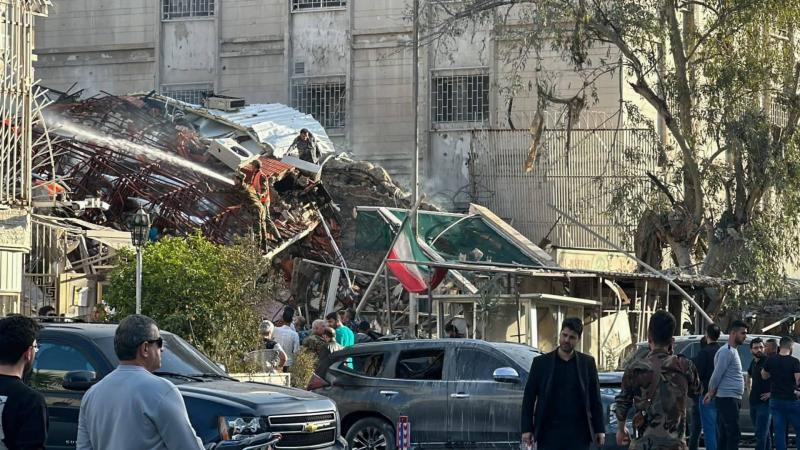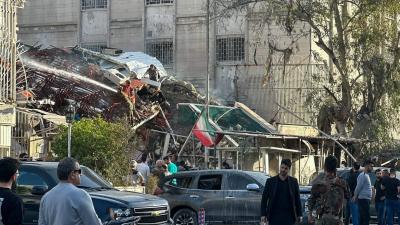With a new chapter opening in the Iranian-Israeli conflict on the grounds of Damascus, following an attack on an Iranian diplomatic facility, questions arise about the nature of the targeting and how it is implemented based on accurate intelligence information. According to the New York Times, Iranian officials stated that the strike, which resulted in the death of Mohammad Reza Zahidi, a commander of the Quds Force of the Iranian Revolutionary Guard in Syria and Lebanon, and other leaders, targeted a "secret" meeting between Iranian intelligence officials and leaders from the Palestinian Islamic Jihad at the building adjacent to the Iranian embassy in Damascus.
How does Israel obtain its information?
The precise targeting of the building next to the Iranian embassy in Damascus has revived recent discussions about mechanisms for leaking security information regarding the locations of Iranian leaders in Syria and the nature of their meetings. Reports during the recent escalation indicated that the Revolutionary Guard conveyed to the Syrian side its "concerns about the involvement of Syrian security forces in leaking information about its units."
Furthermore, informed sources revealed that the Iranian Revolutionary Guard has reduced the deployment of senior officers in Syria due to a series of deadly Israeli strikes, and will rely more on factions allied with Tehran to maintain its influence there. Three sources indicated that while hardliners in Tehran demand revenge, Iran's decision to withdraw senior officers is partially driven by its desire not to get dragged into a burgeoning conflict across the Middle East. They added that Iran does not intend to fully withdraw from Syria and will depend on managing its operations in the country remotely with the help of Lebanese Hezbollah.
The successive targeting of Iranian leaders in Lebanon and Syria reflects a clear Iranian security shortcoming in areas of influence where targets are monitored based on precise information. Following painful consecutive blows from Israel with the assassination of several of its leaders in Syria and Lebanon, experts believe that Israeli intelligence signatures have become evident in Iranian areas of influence, while Tehran's ability to respond similarly has diminished.




